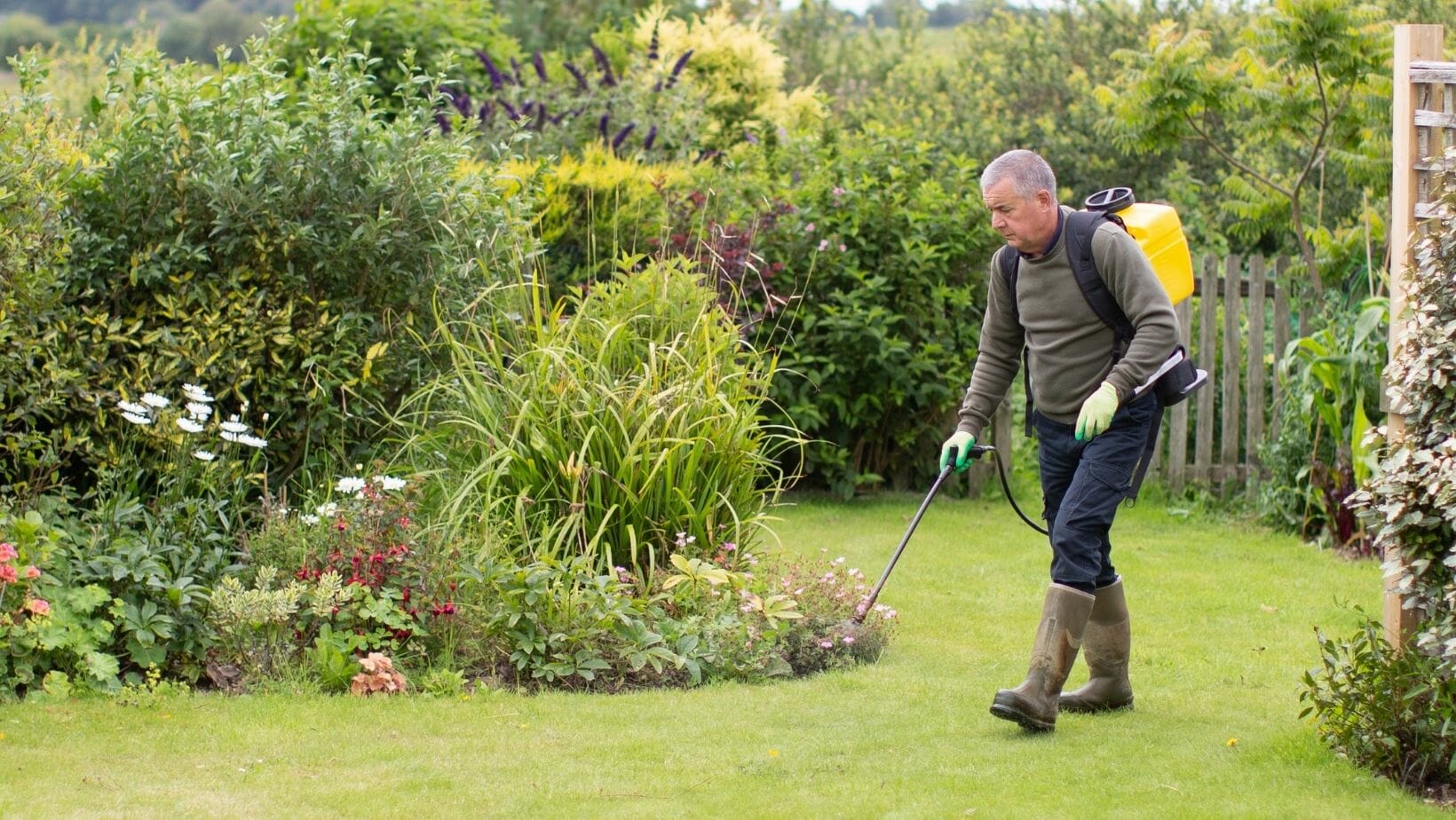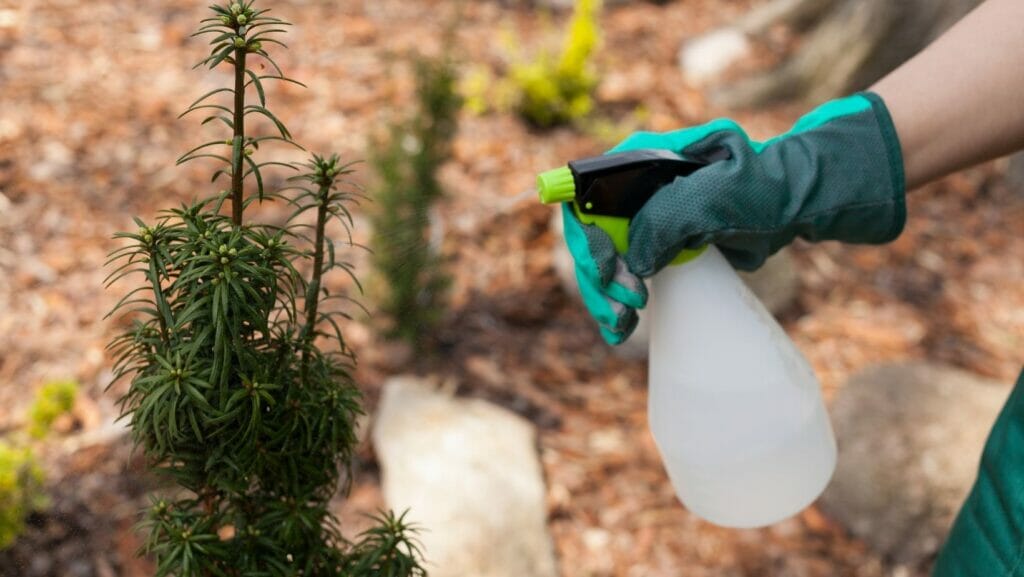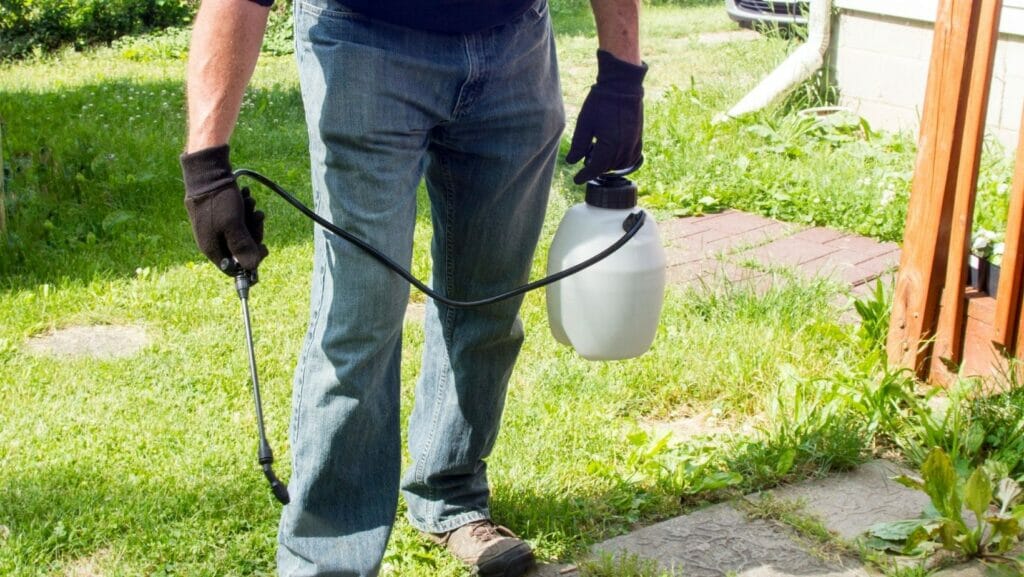
Truth be told, for just about any product you can buy in the store, chances are there’s a DIY alternative for it. And though some of these methods might not offer the sophistication and convenience of some products, the results are often not too far off the mark.
When it comes to being a homeowner, DIY projects can usually save you a ton of money. But some of these projects can also be helpful in many other ways.
One way you keep yourself, your family, and your environment safe through a DIY project is by making your own DIY alternative to harmful chemical insect repellants and herbicides. And there are more than a few ways to do this.
If you’re looking to clean up your landscape, or to rid your garden of weeds, the good news is that you don’t need to rely on harmful chemical herbicides and weed killers. In fact, with a few common ingredients, you can make your own that are just as effective.
Salt, Soap & Vinegar Solutions
Perhaps one of the simplest solutions to harmful weed killers is to use a saltwater solution, or a solution of vinegar, soap and water. Both are effective when it comes to weed control, and won’t harm you or any local wildlife or beneficial insects that your garden and local ecosystem relies on.
A simple saltwater spray can be made as follows:
● Bring 2 cups water to a rolling boil
● Dissolve 1 cup salt in 2 cups hot water
● Add a small portion of mild dish soap
● Pour the solution into a spray bottle
Additionally, you may consider a vinegar solution as well. Common white vinegars are generally made with at least 5 percent acetic acid, which is powerful enough to kill most weeds.
For an effective vinegar solution, you don’t need to dilute it with water. Simply spray the vinegar directly on the plants. However, you can also add a bit of dish soap and a dash of salt as well to make the solution sticky and more effective.
Boiling Water
You’d probably shriek out in pain if someone poured boiling water on your head. And this basically plays out the same with plants. Only instead of going to the ER with painful 3rd degree burns, boiling water will kill weeds at the roots.
Boiling water also won’t ruin the soil or leave a chemical residue that can be harmful to humans and other animals. In fact, this is one of the many problems with chemical weed killers. And farmers and laborers have often reported developing cancer and other health problems after prolonged exposure to chemical herbicides.
When you use boiling water as a weed killer, it basically has an instant fatal effect. Boiling water shocks the plant and causes the roots tissues to die. And in a few days, the weeds will wilt away. This makes for a very effective solution for weeds, especially along paths and walkways, or away from garden plants.
Pre-Emergent Weed Prevention
When it comes to really fighting weeds, the best way is to be proactive and prevent them from growing in the first place. And depending on what type of weeds you’re trying to fight off, if you can time it just right, laying down an effective organic solution is one of the best methods.
Corn gluten meal is an organic pre-emergent weed killer that works great before weeds begin to grow. And the substance is a byproduct of making livestock feed. However, you should note that if you add corn gluten to an area of already established or currently growing weeds, you’ll only be feeding them. And you don’t want to feed the weeds.
This is why it’s important to know the growth patterns and the seasons when specific types of weeds begin to grow and invade your landscape.
Most weed germination cycles begin in early spring. For example, common weeds such as crabgrass usually begin to sprout in April. As such, if you want to deter weed growth using corn gluten, adding this solution in late winter (such as in mid-March) will be the best method for controlling weed growth before it occurs.
Instead of worrying yourself, and potentially putting yourself, your family, or any wildlife at risk, it’s best to not use any form of chemical herbicides whatsoever. And this is because there are so many more natural methods that are highly effective that you can make and use on your own. Remember, at the end of the day, the natural way is always best.














